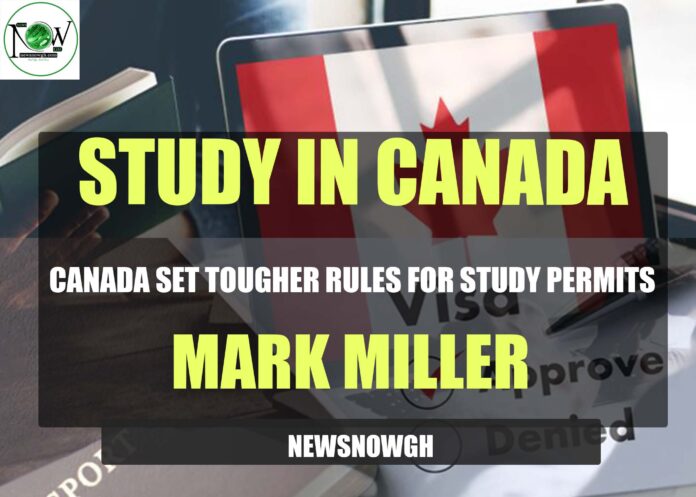Study in Canada: Canada Set Tougher Rules for Study Permits – Mark Miller
The government of Canada will put more pressure on universities to comply with regulations about students. If post-secondary institutions neglect to maintain records of the enrolment of foreign students, the federal government intends to halt the processing of study permits for those students.
According to the proposed laws, educational institutions would have to notify the Federal Immigration Department of each student’s attendance and compliance with all study permit conditions. This action is a part of current initiatives to boost trust in Canada’s program for overseas students.
Canada to Halt Study Permits if DLIs Fail Compliance
To stop frauds like the one committed by Brijesh Mishra, the IRCC and DLI closely monitor new permits required for changing schools. Housing, healthcare demand, and a decrease in Indian students resulted in a two-year intake cap that set a cap of 3.6 lakh permits for 2024.
The federal government intends to stop processing study permits for foreign post-secondary students if educational institutions don’t keep track of these students’ enrollment, attendance, and adherence to study permit requirements, according to a proposal published in the Canada Gazette.
Immigration, Refugees and Citizenship Canada (IRCC), the federal government’s immigration agency for Canada’s provinces and territories, shares management of the program for international students.
Regular Compliance
The Proposal includes provisions for the Designated Learning Institutions (DLI) to report to the IRCC and for the time-bound submission of responses to requests and inquiries. In other cases, international students have also been subject to compliance requirements.
The proposed modifications aim to fortify the educational sector to shield international students from fraud and to guarantee that a study permit isn’t seen as a backdoor to employment in Canada.
Last year, a middleman named Brijesh Mishra committed a fraudulent act that negatively affected hundreds of students, the bulk of whom were from Punjab. These scholars arrived in Canada throughout the years 2017 and 2019. The letters of offer of admission to Canadian higher education institutions, which were necessary for obtaining a study permit in Canada, were found to be fraudulent after investigations by Canadian officials.
Upon their arrival in Canada, the students were requested to transfer to a different college, rather than the one from which they had obtained their study permit and permission to enter the country. The students’ attempts to get permanent residency exposed most of the anomalies.
The proposed amendments would mandate that a Canadian study permit holder who wishes to transfer to educational institutions and received a letter of acceptance to attend a DLI different from the one listed on their permit must apply for a new study permit before the start date of the new program of study.
Until the application is decided, the student would be able to attend the new school under the proposed regulations without a valid study permission. so long as the student stays in Canada and fulfills all other requirements included in their study permit. Only DLI post-secondary students and international post-secondary students are covered by the proposed regulatory changes.
The Open Window for Inviting Comments from Stakeholders and Publicans
As of July 29, 2023, there were little over 10 lakh overseas students enrolled in Canadian universities. According to data accessible per country in 2022, Canada welcomed 5.5 lakh new students from 184 different nations. With 2.2 lakh new students, India was by far the largest source country, followed by China with over 52,000 new students.
On the other hand, in 2023, the number of Indian students declined significantly. Between July and October 2022, the Canadian government processed about 1.46 lakh new applications for study permits from Indian nationals; however, during the same time in 2023, there was a 40% decrease.
Due to the housing problem, the inflow of immigrant students, and the burden on the healthcare system, the federal government announced in January that it would only be able to accept 3.60 lakh study permits for international students in 2024.
The provinces disagreed with the government’s decision to stop issuing study permits to institutions that don’t comply, citing worries that increased federal authority would infringe on their mandate for education. Nevertheless, the government claimed that the proposed changes result from extensive consultation.
The adjustments are expected to cost nearly $87 million in present value over a ten-year period, which includes charges for study permit holders who want to transfer schools as well as government implementation expenditures to approved learning institutions.
In addition, as Miller had previously stated, international students’ weekly off-campus work hours will now be 24 hours instead of 20 due to the regulatory changes. This adjustment would assist international students in offsetting their rising living expenses. According to the administration, the public has until July 29th to provide feedback on the suggested adjustments.


